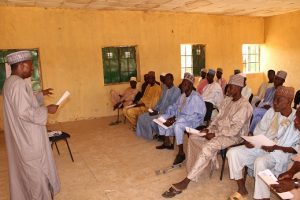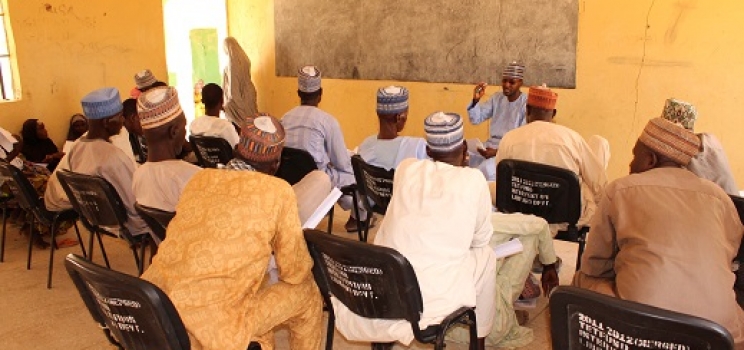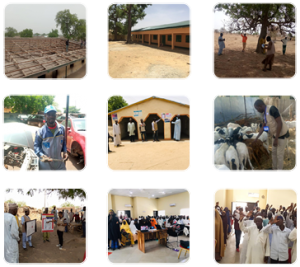Dialogue Session Helps vulnerable populations learn how to build resilience and to disrupt extremists’ entry point
June 2018 – In a bid to counter violent extremists influence in Nigeria’s Northeast, Centre for Community Development and Research Network has carried out sensitization of 125 opinion leaders and influential persons across 5 vulnerable communities in Yunusari LGA area of Yobe state.
Twenty-five influential persons were identified in each of the five targeted communities for the sensitization and dialogue which revolved around helping community members to understand the gambits of violent extremist groups with a view to enabling them to fathom their manifest and latent maneuvers and its associated consequences
These communities, GarinGada, Zaye, Yaro, Mashio and Bultuwa were specially targeted because they are located within the area where ISIS-WA is trying to exert influence with new schemes aimed at gaining the trust and sympathy of local population.
The sensitization and dialogue session is part of a USAID/OTI supported project via Northeast Regional Initiative, in an effort to help build community resilience against violent extremism and to further disrupt extremists’ entry point and recruitment drive.
To achieve its core objective, the sensitization and dialogue was streamlined to include deliberations on how to check violent extremist’s ideologies, drivers, pathways as well as strategies to generate counter narrative and to ensure peaceful coexistence in the communities.
Community members were dissuaded from sympathizing with extremists groups and through the sensitization, they expressed steadfastness to diminish ISIS-WA influence towards ensuring peace in their communities.

a group of opinion leaders listening attentively during sensitization lecture. Picture: CCDRN
The village head of Garin-gada, commended the efforts of CCDRN for choosing his community for as part of the project. He however, called on CCDRN to intervene by organizing programme that will empower the people economically. Adding that, Garin-gada one of the targeted communities has been experiencing poverty due to consequences of VEOs operations ranging from closing down of farming activities, migration of people and closure of market.
“The most driving factor that made extremists to gain patronage in our community is due to vulnerability of the youth as a result of simplicity in adopting their ideology given their high level of illiteracy” says a community member, name withheld.
Other community members attested that the project has helped in opening their eyes to the dangers of sympathizing with extremists groups.
However, more needs to be done in areas of empowerment, literacy and other livelihood support to help address the vulnerabilities of community members to the entreaties of violent extremist organizations who often capitalize on these openings to recruit and radicalize followers

